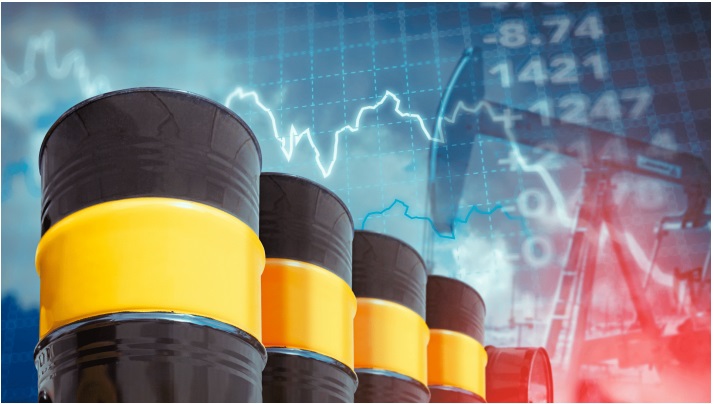You will frequently come across the words options and futures trading as a beginner in the stock market and on global commodity markets. Futures trading is frequently linked to affluent Wall Street financiers.
Newcomers may find this frightening because futures have historically been associated with the financial industry. To make it simpler for you to comprehend, let’s break it down.
Table of Contents:
- What is Futures Trading?
- Futures Trading Tips for Beginners
- Example of Futures Trading
- Commodity Futures Trading
- Futures Trading on Reddit
- Final Thoughts
What is Futures Trading?
In futures contracts, the seller and the buyer both agree to accept delivery of a certain amount of the underlying commodity at a predetermined price, time, and location. In contrast to options, buyers of futures contracts have no choice and the market price at the moment of execution is unimportant.
As a result, once a futures contract is signed, it is enforceable against both parties, and traders are obligated to abide by its conditions in the future. Consider a taxi driver who charges $5 per kilometer, has a $3 per kilometer fuel expense, and makes a $2 profit margin to help you comprehend why futures exist. The profit margin would nearly halve if fuel costs rose to $4 per kilometer.
The cab driver could secure a set fuel price for a year by entering into a futures contract with a gas station to prevent this. While the party shorting the contract agrees to sell at the forward price, the party agreeing to purchase the commodity pays the forward price. Trading in futures differs significantly from trading in options in that buyers of futures are required to complete the transaction at the agreed-upon price and date, regardless of the asset’s present market value. Options grant the right but not the obligation to purchase or sell. In the event that the value of the underlying product declines from the forward price, purchasing futures may incur sizable losses. As a result, thorough research must be done before making any investment choices.
Futures Trading Tips for Beginners
Futures contracts can be categorized into two groups: Financial Futures and Commodity Futures because they draw their value from underlying assets that can be valued. While commodity futures are contracts for physical assets like energy, metals, or raw materials, financial futures deal with intangible assets like stocks, interest rates, currencies, and indexes.
Futures contracts are frequently traded on margin, allowing dealers to leverage multiples of their available capital. The initial margin, which is the minimal sum needed to enter into a contract, is determined by the exchange. The customer margin is determined by regulatory bodies, who take into consideration variables like market risk and contract value. Brokers will issue a margin call when initial margins start to shrink and demand new capital from dealers to make up the difference.


The sort of asset or commodity being traded, the execution month, and the execution year are all included in futures contracts. January is denoted by the letter F, while December is denoted by the letter Z. For instance, the abbreviation CLG21 refers for Crude Oil WTI February 2021. Speculators and hedgers both fall under the category of futures dealers. Hedgers use futures to reduce the risks that asset or commodity price fluctuations pose to their company or supply chain. Hedgers are usually manufacturers or producers who want to lock in specific prices for their essential goods or costs. Contrarily, speculators are traders who engage into futures contracts by speculating on the future prices of commodities in an effort to profit from changes in price.
Example of Futures Trading
Let’s say you looked at crude oil prices using both technical and emotional analysis, and you came to the conclusion that prices would rise shortly. To profit from this circumstance, you purchased a 5000 barrel oil futures contract with a 30 day expiration at the present market price of $50 per barrel. This means that at the current market price, you would obtain the value after 30 days that would be equal to 5000 barrels of oil. You will benefit if the price of oil rises during this time. You will earn $25000, for instance, if the price of crude increases by $5 during this time.
On the other hand, if the price falls by $5, you would lose $25,000. To prevent immediate losses, investors can also roll over contracts, closing the old one and starting a new one with an extended expiration date at the going rate. Rolling over contracts, as was done with Oil futures during the epidemic, can be a practical way to survive struggling markets until prices start to rise. Oil futures investors who wanted to withstand the falling oil prices had to take on long positions and roll over their contracts.
Commodity Futures Trading
Agricultural products, mineral ores, and fossil fuels are examples of main raw materials that are used as input in other production stages and are referred to as commodities. They are usually divided into three categories: agriculture, energy, and metals. Energy commodities include crude oil, heating oil, natural gas, and fuel, while metal commodities include gold, silver, platinum, and copper. Rice, soybeans, wheat, maize, coffee, cocoa, and animal goods are examples of agricultural commodities. Because of changes in supply and demand across the world, commodity values are constantly fluctuating in the market.
Hedgers use futures contracts to deliver commodities of a specific quality and quantity at a set price in order to prevent potential losses from future price fluctuations. The reason speculative speculators engage in futures contracts, as opposed to hedgers, is to profit from possible price fluctuations. Leverage is the main benefit of futures contracts for traders. They can afford to acquire a larger number of commodities with futures contracts than they could on the spot market. The use of futures contracts allows for the purchase or sale of specific commodity assets at a preset price at a predetermined point in the future. Traders purchase futures and assume long positions when they anticipate that the price of a commodity will increase. On the other hand, they turn to short selling if they anticipate a decline in the worth of a commodity.


Futures Trading on Reddit
Social trading has become more prevalent as a result of the 2020 worldwide lockdowns. Capital markets have been greatly impacted by social media forums, particularly Reddit, with Reddit emerging as the most notable disruptor. Users can ask questions, post pertinent news, share trading strategies, and dispel myths on the platform’s excellent social discussion forum. With careful filtration, the abundance of information accessible can prove to be a priceless source of knowledge. Some of the most well-known trading subreddits include /r/wallstreetbets (10.7M+ members), /r/stocks (2.9M members), and /r/investing (1.9M members).
There are even subreddits solely devoted to trading futures, like the nearly 21,000-member /r/FuturesTrading. Beginners in trading can benefit from these niche communities because they give them access to a community of experts to talk with and ask questions of, essentially giving away free investment advice. These forums are also a great place for seasoned traders to share their expertise and contribute back to the community. Overall, social trading on websites like Reddit has the ability to completely change how people think about trading and investing.
Final Thoughts
In conclusion, futures trading entails speculating on potential changes in price, and it is impossible to know with certainty which way those changes will occur. The market can still move against traders despite careful analysis, so it’s critical to have a solid risk management plan to safeguard investments. Futures are a great way for investors to engage in the stock market, including hedgers and speculators.

